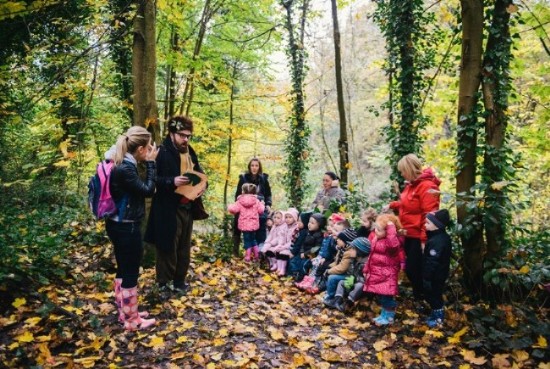
Blog No 4
You’re never too wee to be inspired!
I was chatting to a group of two year olds recently. This was part of a consultative process, a focus group run to help us better understand the interests and ambitions of a younger demographic to assist in our membership drive. The key themes that emerged concerned the discomfort of nappy rash and the difficulties of learning to perambulate unaided and unhindered by parental expectations.
No, but really, the recent discussion on making available school places for two year olds is quite a thought. They are just wee weans that need food, warmth and lots of love. And play. Their ability to learn quickly, to explore without inhibition, to imagine and dream, all appear to mirror the playful qualities of the creative process. How can we keep that flame burning in children before they become affected by what has recently been described as an "unprecedented toxic climate" of stress and pressure, according to a survey. Fear of failure, bullying, pressure to be thin and depression were some of the issues complained of by youngsters questioned in a poll commissioned for the UK charity Young Minds. The positive effect of the arts on mental well-being is well established. Not as a curative panacea, but as an aspect of being human. It can be in school that we can sustain and extend the opportunities to be creative and to enjoy and learn about the arts. And as signatories to Article 31 of the United Nations Convention on the Rights of the Child we have made that commitment to ‘respect and promote the right of the child to participate fully in cultural and artistic life and shall encourage the provision of appropriate and equal opportunities for cultural, artistic, recreational and leisure activity.’
Happily we have in Scotland a new Curriculum for Excellence that speaks well of the expressive arts;
‘The inspiration and power of the arts play a vital role in enabling our children and young people to enhance their creative talent and develop their artistic skills. The expressive arts play a central role in shaping our sense of our personal, social and cultural identity.’
These are all very fine words, and there are some fine examples in formal education and in the voluntary sector of the words turning into action. There are some inspirational examples in music, from the exemplary community driven work of Fèisean nan Gàidheal and the transformational ‘Big Noise’ in Raploch to the Youth Music Initiative investing £10m each year to support both formal and informal opportunities for youngsters in every local authority. And talking of two year olds there is the wonderful Starcatchers project that presents work for that age group.
But our report card on other fronts might say ‘could do better’. The picture is less favourable in terms of theatre for children and young people.
I sit on the board of ‘Imaginate’, our highly regarded international festival of performing arts for children and young people. They reported on the challenge in their report ‘All Icing and No Cake.’
www.imaginate.org.uk/wp.../All-icing-and-no-cake-Imaginate-2012.pdf
They compared Denmark with 30 theatre companies funded year round to offer work for children and young people to the 2 in Scotland. There are other commercially driven companies performing in schools but of questionable quality.
As Imaginate CEO Tony Reekie says in the report-
‘As a nation we would never contemplate sending inexperienced, unqualified people to teach our children to read, write and count. If we regard the performing arts as being an integral part of creating a healthier, fairer and smarter Scotland then the same conditions must apply.’
So regardless of whether at two or ten years old, the school should be a place where a child’s curiosity and creativity is treasured, nurtured and exposed to the very best that we have to offer.
And if you know of any two year olds who share our passion for the health of Scottish cultural life you can find the details of our new Saltire youth membership on this website. Mind you they might need a wee hand with the form filling.